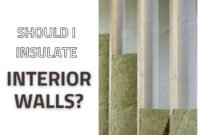Styrofoam is a popular choice for reliable insulation solutions, widely used in packaging and building insulation. Its ability to effectively slow the transfer of heat energy makes it stand out in various applications.
But what sets Styrofoam apart from other materials and makes it a favored insulator? This article explores the insulating properties of Styrofoam, its advantages, and its potential drawbacks.
Why is Styrofoam A Good Insulator?
Styrofoam is an expanded polystyrene foam, a plastic material derived primarily from petroleum. The term is a trademarked brand by The Dow Chemical Company, but it has become generic for all expanded polystyrene foam products.
The insulating properties of Styrofoam arise from its unique structure, consisting of millions of tiny air bubbles trapped within a plastic matrix. These air bubbles, making up 95-98% of the foam’s volume, are key in preventing the flow of heat energy from a warmer object to a colder one.

Air, a poor conductor of heat, significantly hinders the rapid transfer of heat energy. When heat attempts to pass through Styrofoam, it is absorbed and trapped by the air within the bubbles, effectively preventing it from moving from a warmer object to a colder area.
Read also: Is Expanding Foam Waterproof? Here’s the Explanation
Know Styrofoam Pros and Cons as an Insulator
Styrofoam, like any other material, has its advantages and disadvantages. Understanding these can help you decide whether it’s the right choice for your insulation needs.
So, what are the pros of using Styrofoam as an insulator? To know the answer, it is better to check the list below:
● Excellent Insulation Properties
Styrofoam is an excellent insulator against heat, cold, and sound due to its structure, composed of tiny air bubbles. These air bubbles trap heat and sound, preventing their transmission.
● Lightweight and Easy to Install
Styrofoam is very light, making it easy to handle and install. This characteristic can reduce labor costs and complete the installation process quicker and more efficiently.
● Moisture Resistance
Styrofoam does not absorb moisture, making it a good choice for damp or humid climates. This property also helps prevent the growth of mold and mildew, which can be a problem with other types of insulation.
● Cost-Effective
Styrofoam is generally less expensive than many other types of insulation. Thus, it is a popular choice for large-scale projects or those on a tight budget.
Along with the pros, there are some cons. Well, the cons of using Styrofoam as an insulator are explained below:
● Durability Issues
Styrofoam is not as durable as other insulation types. Over time, Styrofoam may deteriorate due to regular use, damage, or exposure to extreme temperatures. As a result, it may need to be replaced earlier than alternative insulation materials.
● Potential Health Risks
Some studies suggest that polystyrene, the type of plastic used in Styrofoam, can release toxins into the air over time if not properly sealed. These toxins could potentially pose health risks, especially in poorly ventilated areas.
● Environmental Impact
While Styrofoam is recyclable, not all recycling facilities accept it. Additionally, it can take hundreds of years to decompose in a landfill. The production of Styrofoam also involves petroleum, a non-renewable resource.
● Flammability
Styrofoam is flammable and can release toxic fumes when burned. Therefore, it must be treated appropriately with a fire retardant or covered with a fire-resistant material.
Is Styrofoam a Good Insulator for Heat?
Styrofoam is indeed an efficient insulator against heat. Its predominantly air structure traps heat energy within the tiny air bubbles, effectively preventing it from escaping and maintaining a consistent temperature.
This structure makes Styrofoam an excellent barrier against heat loss or gain, helping maintain consistent indoor temperatures throughout the year.
Is Styrofoam a Good Insulator for Cold?
Styrofoam is equally effective in cold temperatures. It is commonly used in refrigerators, freezers, and industrial cold storage due to its excellent thermal insulating properties.
Read also: How to Insulate a Concrete Floor from Cold?
The trapped air within Styrofoam prevents the cold air from escaping, maintaining the desired low temperatures.
Why is Styrofoam a good insulator? Styrofoam is a versatile and cost-effective insulator, effective against heat, cold, and sound. However, its potential health risks and durability issues should be considered when choosing it as an insulating material.

